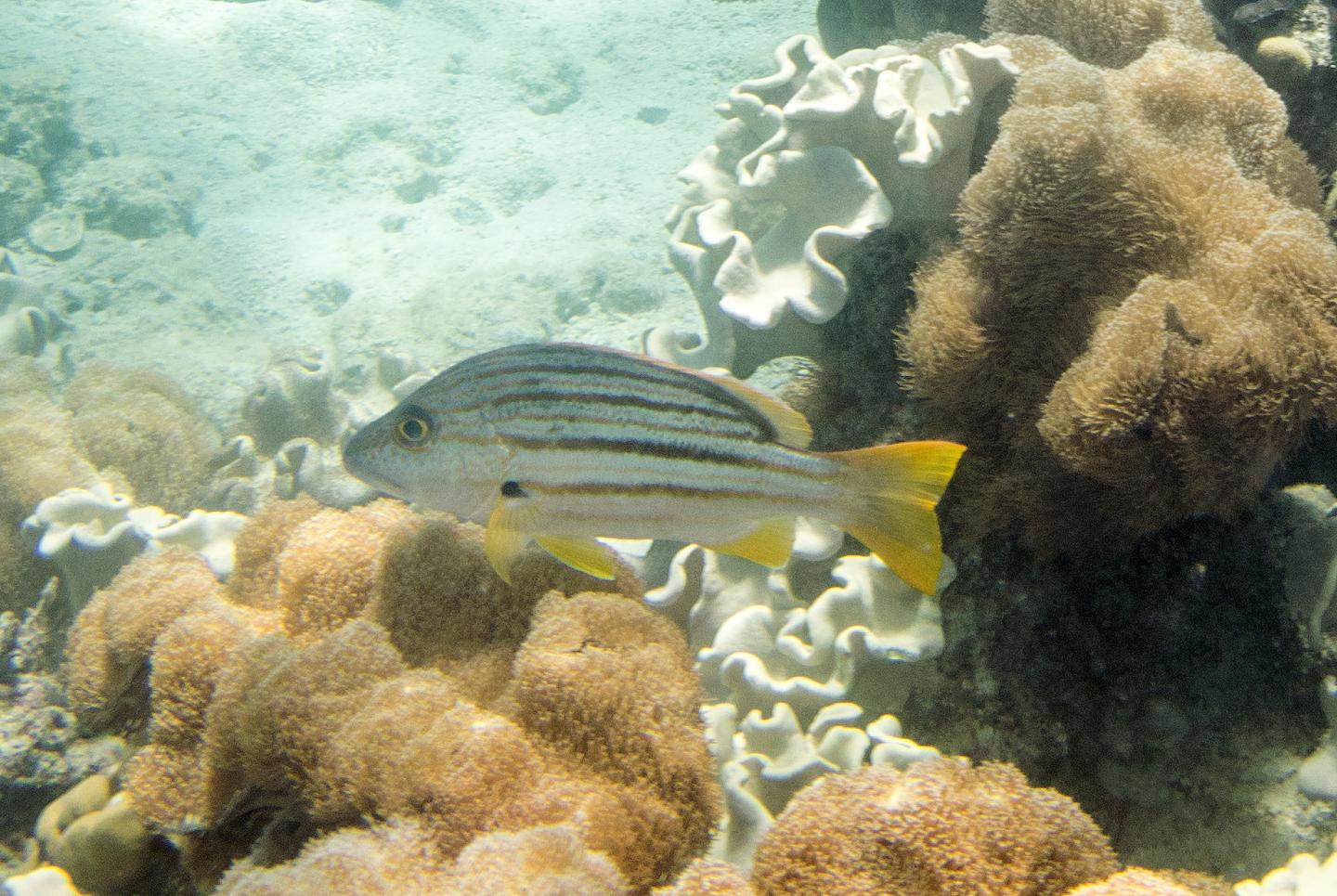
Credit: Flickr user, pauljill
About 200 countries worldwide committed to protecting 10% of national marine areas by signing the Convention on Biological Diversity. But more ambitious marine reserve coverage policies that target unprotected fishing grounds would benefit millions of people who depend on fisheries for food and livelihoods, argue the authors of an international study, publishing on January 5 in the open access journal PLOS Biology.
The research from Nils Krueck, Peter Mumby and colleagues at the University of Queensland, World Wildlife Fund, and the University of Melbourne makes the case for strict protection of 20-30% of fishing grounds, specifically where both biodiversity and fisheries are threatened.
The study has an explicit focus on otherwise unregulated fishing grounds. Previous research raised valid concerns that designating parts of the fishing ground for protection can reduce the value of fisheries when they are well managed. However, marine reserves are one of the few means of managing fisheries where conventional regulations, such as catch limits, are too difficult to enforce.
"Coral reefs in the south-east Asian Coral Triangle region typify the situation in which marine reserves can be an effective management tool. In much of the region, fisheries are highly diverse, overfishing is commonplace, and catches are largely unassessed and unregulated. Coral reef fisheries in particular should then benefit from closing 20-30% of fishing grounds because fish populations get a chance to recover and are then likely to support the export of young fishes from reserves to fished areas," said study author Dr. Krueck.
"Marine reserves alone will not be sufficient to solve the current fisheries crisis in the Coral Triangle," study co-author Professor Mumby said. "But our theoretic analysis of thousands of fisheries scenarios highlights that net declines in catches after more than 10 or so years of recovery should be rare."
"Enforcing marine reserves is a relatively simple management action," said Mumby, "but it is still a long way from the currently estimated 1-2% 'effective' protection on coral reefs to the recommended 20-30% strict no-take reserve coverage."
###
In your coverage please use this URL to provide access to the freely available article in PLOS Biology: http://journals.plos.org/plosbiology/article?id=10.1371/journal.pbio.2000537
Contact: Nils C. Krueck, [email protected]; Peter J. Mumby, [email protected]
Citation: Krueck NC, Ahmadia GN, Possingham HP, Riginos C, Treml EA, Mumby PJ (2017) Marine Reserve Targets to Sustain and Rebuild Unregulated Fisheries. PLoS Biol 15(1): e2000537. doi:10.1371/journal.pbio.2000537
Image Caption: Spanish flag Lutjanus carponotatus fishbase
Image Credit: Flickr user, pauljill
Funding: Australian Research Council http://www.arc.gov.au/ (grant number LP120200245). This work was supported by an Australian Research Council Linkage Project co-funded by the World Wildlife Fund (WWF) Indonesia (awarded to PJM, EAT, HPP, and CR). The funder had no role in study design, data collection and analysis, decision to publish, or preparation of the manuscript. World Bank/GEF (Capturing Coral Reef & Related Ecosystem Services) (grant number). This work was also supported by the World Bank Project "Capturing Coral Reef & Related Ecosystem Services" funded by the Global Environment Facility (GEF) and by the University of Queensland (awarded to PJM). The funder had no role in study design, data collection and analysis, decision to publish, or preparation of the manuscript.
Competing Interests: The authors have declared that no competing interests exist.
About Biology
PLOS Biology is an open-access, peer-reviewed journal published by PLOS, featuring research articles of exceptional significance, originality, and relevance in all areas of biology. For more information visit http://journals.plos.org/plosbiology/, or follow @PLOSBiology on Twitter.
Media and Copyright Information
For information about PLOS Biology relevant to journalists, bloggers and press officers, including details of our press release process and embargo policy, visit http://journals.plos.org/plosbiology/s/press-and-media.
PLOS Journals publish under a Creative Commons Attribution License, which permits free reuse of all materials published with the article, so long as the work is cited.
About the Public Library of Science
The Public Library of Science (PLOS) PLOS is a nonprofit publisher and advocacy organization founded to accelerate progress in science and medicine by leading a transformation in research communication. For more information, visit http://www.plos.org.
Disclaimer
This press release refers to upcoming articles in PLOS Biology. The releases have been provided by the article authors and/or journal staff. Any opinions expressed in these are the personal views of the contributors, and do not necessarily represent the views or policies of PLOS. PLOS expressly disclaims any and all warranties and liability in connection with the information found in the release and article and your use of such information.
Media Contact
PLOS Biology
[email protected]
############
Story Source: Materials provided by Scienmag





